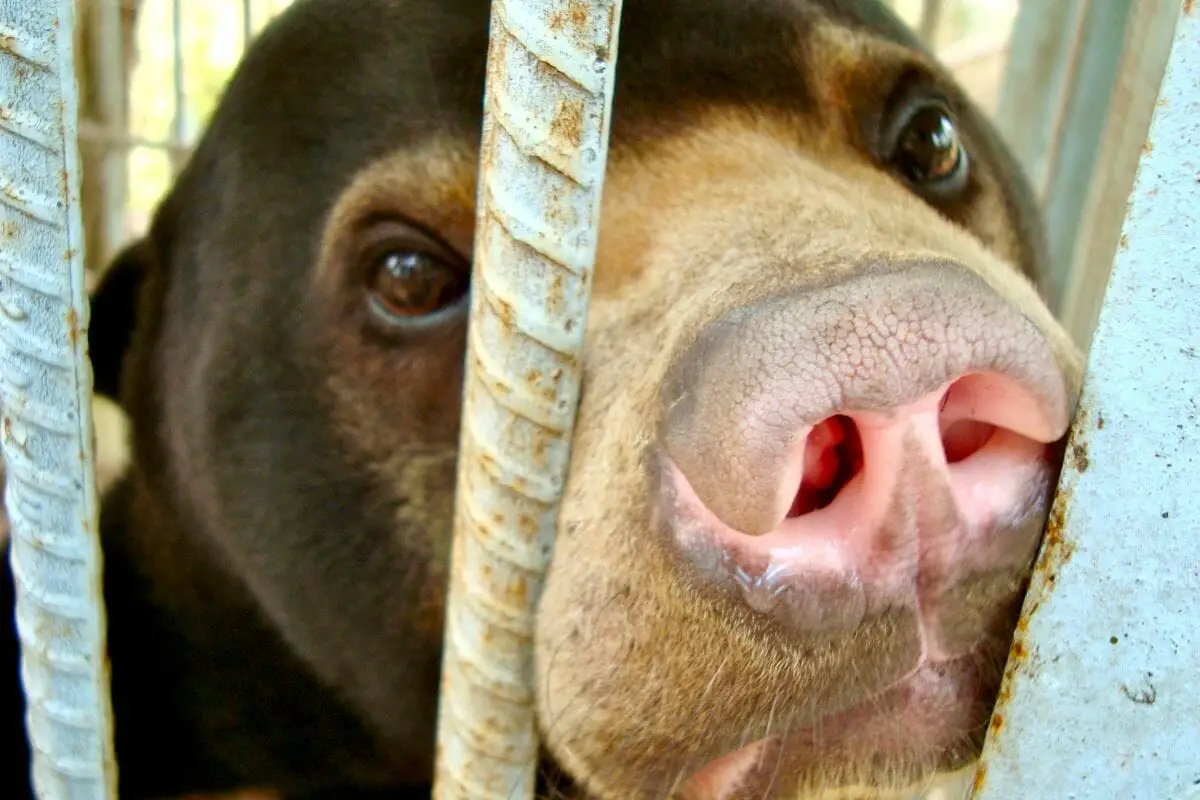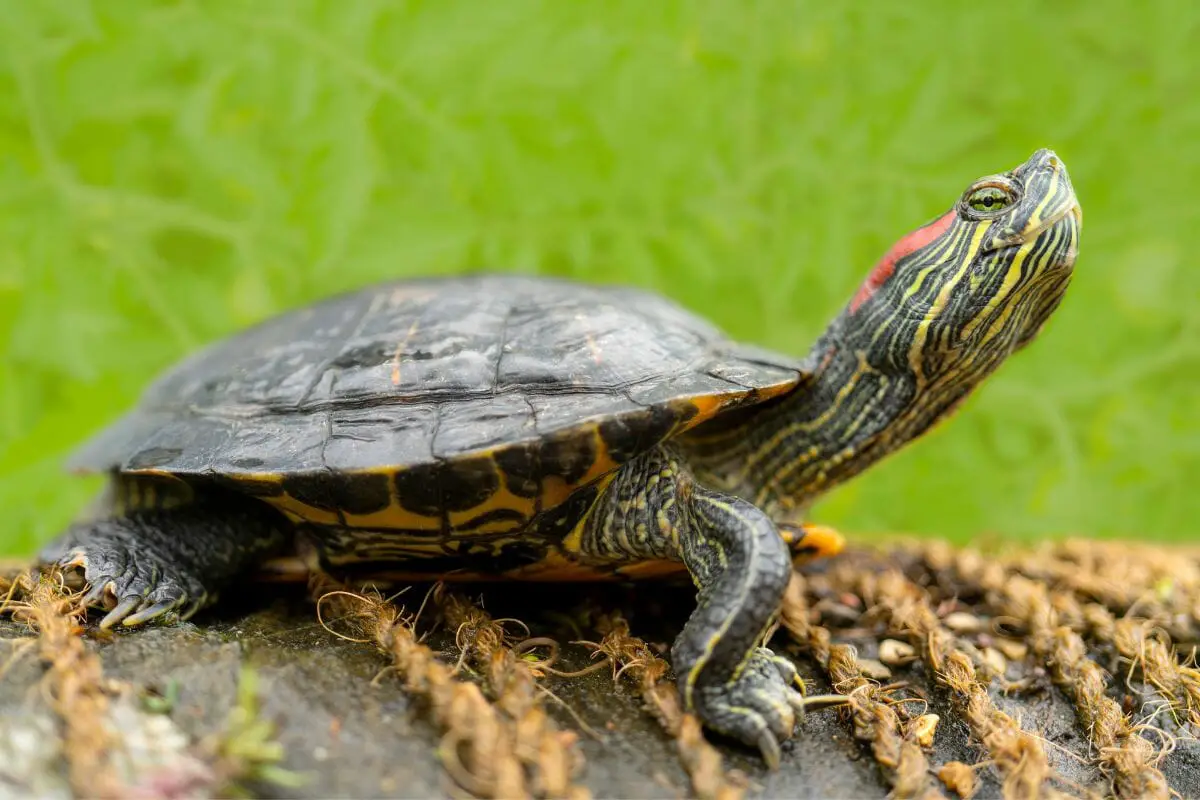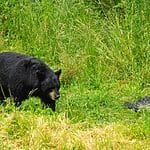Wildlife trafficking and trade is one of the most common and lucrative illegal industries in the world.
A large number of animals are illegally trafficked every year so they can be bought by private collectors or used for unethical products.

This trade can often seem too large and complicated for the average person to have any real influence over it.
Many of us want to help prevent wildlife trafficking but simply feel too small and powerless to be able to make a difference.
However, this isn’t the case. Even as an individual, there are plenty of things you can do to help stop wildlife trafficking.
In this article, we will look at several steps you can take to help stop this illegal trade.
Avoid Wildlife Experiences
When you’re traveling abroad, be very wary of any places that advertise experiences with animals.
Although there are many responsible and legitimate zoos and wildlife parks located across the world that are home to animals that have been acquired through legitimate means, there are also many that source their animals from wildlife trafficking.
This is especially the case for any places that allow visitors to interact with wild animals.
Be wary of any establishments that allow visitors to take photographs with or even meet animals such as tigers, lions, monkeys, parrots, bears, or any other wild animals.
Most legitimate zoos would not allow tourists to get close to potentially dangerous animals like these and it can be a sign that the animals have not been acquired legitimately.
Before you visit any of these places, research them so you can be sure that your money isn’t going to support wildlife trafficking.
Buy Sustainably Sourced Products
Try to be a responsible consumer and only purchase products where you can identify the supply chain and the original source of the ingredients.
This doesn’t just relate to products that use ingredients derived from animals, either.
For example, make sure that any products you buy that are made from wood use wood that has been harvested ethically.
The quickest and easiest way to do this is to check if the wood is FSC certified. The FSC monitors forests to ensure that wood is harvested in a manner that is of social, environmental, and economic benefit.
Large amounts of wood are harvested illegally each year. This results in deforestation that not only directly affects wildlife by reducing their habitat, but can also lead to an increase in poaching and trafficking.
Palm oil is another product that can have similar effects on wildlife and trafficking.
Luckily, there are several apps available for both iOS and Android that can help you to discover the sources of the ingredients and products that you buy.
Don’t Buy Products Derived From Endangered And Exotic Animals
Different countries have different laws and regulations regarding products made from endangered and exotic animals.
This can lead to many animals being trafficked to make products that are legal in one country but not another.
Although most people are aware of the issues with buying ivory and fur, there are many other animal products that often escape people’s notice.
These items can be bought with good intentions as gifts or mementos of treasured vacations but they should also be avoided.
For example, avoid purchasing any items that use genuine bird feathers, tortoise shells, cacti, coral, and wild orchids.
If you’re in doubt, you should ask for information about the animal used and where it was sourced from.
Remember, however, that legality does differ from country to country so if you’re still not sure if the item should be purchased, it’s best to err on the side of caution and keep your money.
Choose The Right Pets

Exotic pets have never been more popular than in recent years. Many pet owners have decided to add lizards, reptiles, and birds to their homes that are not native to their own country.
For this reason, the United States has become a very popular destination for trafficked pets.
Before you purchase any exotic pet, you should check to see where the animal has come from.
Some exotic pets are bred from stock that has been within the United States for decades and doesn’t contribute to wildlife trafficking.
However, many other pets are trafficked into the country so they can be sold as pets.
If you must have an exotic animal as a pet, please ensure that you are not buying a trafficked animal and contributing to this illegal and damaging trade.
Petition Your Local Government
Although you may not be able to stop wildlife trafficking at its source, you can help to prevent it from having a customer base.
Animals are trafficked because people are willing to pay to receive them or products derived from them and by petitioning your local government, you can try to change laws and prevent animals from being trafficked to your state or country.
The first step to preventing trafficked animals from arriving in the US is to make the trade illegal.
Although making things illegal won’t stop the most determined and unethical of animal traffickers, it will add more obstacles and ensure there are tougher penalties for anyone who is caught.
By reducing the demand for animal trafficking, the number of animals trafficked will also reduce.
Report Any Illegal Wildlife Trafficking
If you have suspicions that someone in your local area is dealing with or receiving trafficked animals then you can anonymously report this information to a variety of organizations such as WildLeaks.
They will protect your information and investigate any tips they get.
Thanks to the internet, we can see and discover things that are happening anywhere in the world.
This means that you aren’t just restricted to what is happening in your town or State.
If you see anything online that suggests wildlife trafficking you can report this too, even if it happens halfway across the world.
Support Ethical Animal Charities
No matter where you are in the world, there are charities in your local area that are working hard to stop animal trafficking.
They are in constant need of volunteers and financial support to help them with their important work and you can easily get involved.
If you have the budget, consider making a donation to help them continue their work.
If you don’t have the money but do have some time, you can help them with their awareness campaigns so that other people can become educated about the problem and how to help.
Even the small act of adding your name to a petition and then promoting it on your social media accounts can help.
Final Thoughts
In this article, we listed several steps you can take to help prevent wildlife trafficking.
Some of them require being aware and alert as a tourist, whereas others ask you to be cautious when purchasing animal products at home.
You can also become an activist at home by petitioning your local government and supporting charities in your home country that are against wildlife trafficking.
We hope that this article will give you plenty of ideas on how you can help to stop wildlife trafficking (see also: Wildlife Trafficking Crime Statistics: A Full Breakdown).








